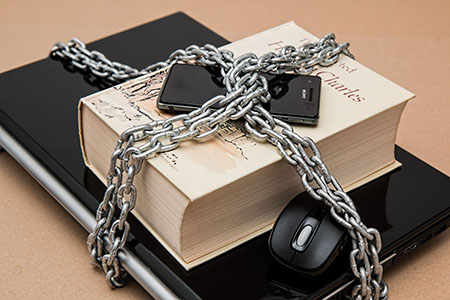Why should you keep strong passwords?
A strong password is a first and foremost blockade in protecting your credentials and personal information online. To keep your online accounts secure, you must remain updated with the ongoing trends and practices of cyber security.
Your personal information, financial information, and identity could be taken from you swiftly if you don't use a strong password. One of the most common ways for hackers to get access to your information is through passwords.
Why don’t people use strong passwords?

We understand
Too many rules. Too many letters. Lowercase this, Uppercase that. Now, where did I put the asterisk again? We get it. Passwords are hard. They are too long, too complicated, and contain far too many numbers. Our memories fail us. One password for all is the anthem. And we need to log in to our accounts swiftly!
Because, honestly, who is going to remember five different passwords to log in to five different accounts? What is even worth this hassle? Quite a bit. More than you could ever imagine.
But…
People should be aware of the potentially massive consequences of having their digital security breached. Even if they start with awareness, they get lazy midway and turn back to their old routines of using their birthdates as their passwords.
They do not think they will ever be the victim of some hacker on the other side of the screen, which is one of the main reasons they do not use strong passwords. They assume that only the richest or biggest enterprises need protection measures, considering the large sums of money crooked minds will be after.
They are evaded by their credulity and refuse to accept responsibility until it happens to them. The consequences are huge and distressing for the victim of cybercrime. This is precisely why one needs to devote time and memory to creating strong passwords so they don't end up on the short end of the stick in the future.
Tips on creating strong passwords
The need for strong passwords will help you defend your online essentials from the intrusion of hackers. Below, we have provided some tips to help you build strong passwords.
- Exaggerate the length. If possible, try to go beyond 12 characters.
- Make it hard to guess. Refrain from putting sequences like 1234 in your passwords.
- Add complexities. Diversify it by adding whatever you can get from your keyboard. Numbers, symbols, lowercase, uppercase—mix it all up!
- Don’t get personal. Avoid using your date of birth or the year you were born as a password. Personal details can be easily searched on social media platforms and the like.
- Have it make sense. You should opt for a password that you can memorise and store for longer durations.
- Rarify it. Avoid commonality. Avoid using the word "password" or use the same password across all logins.

Things you need to do to secure your strong passwords
Keep these Donts in mind:
- Do not ever make the mistake of writing your passwords on paper or saving them in your digital notes.
- No matter how convenient it seems, put your best effort into not inputting your passwords into your browser's autofill password saver.
- Try not to share your passwords with your acquaintances, tech support, or multiple people, in general.
- Don’t send or share your passwords over emails, text messages, or other applications.
What you need to do is:
Activation of two-factor authenticationOnce you have entered a strong password successfully, an additional security check will be performed. This is only possible when you have activated two-factor authentication. It is best to update this function on all your accounts for enhanced security. Methods like text, email, face ID, fingerprints, and other biometrics are used, which only you have exclusive access to.
Regularly change your most important passwordsUpdating your passwords involves changing them. Keeping the same password for a long time weakens the security of your account. In fact, only changing a few characters of the previous password is not enough to create a strong password. The password should be unique and difficult to guess for the hacker. Try changing your passwords every month or so for the following accounts:
- Social media
- Online banking
- Bills payment
- Password manager
With all the advice and the stress of changing and renewing passwords, a person can get befuddled with all the hoopla of remembering the renewed codes. This adds to the skepticism about why people don't bother to follow safety protocols.
This is where password managers come to save you from the inconvenience of the many steps you have to take for creating a strong password. A good password manager generates randomized, strong, and unique passwords and even saves them in a secure manner for you! It helps create unique passwords for every single account of yours. So, when a hacker breaches your data from one of your accounts, the other accounts won't be accessible to them in any way.
Conclusion
The above post places enough emphasis on the need for strong passwords for all; to get complete protection for your accounts, you must go through the link provided below.





